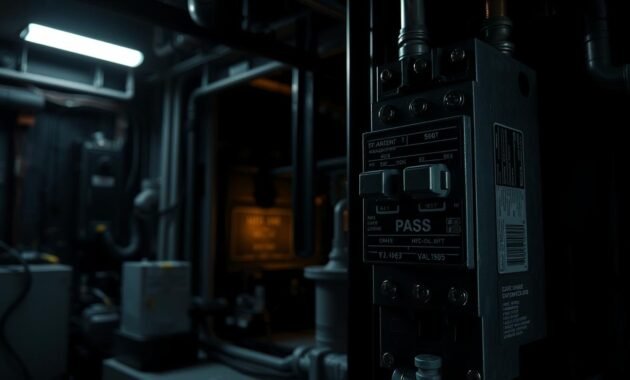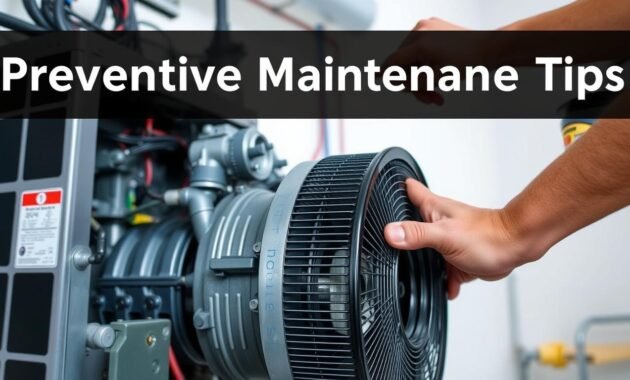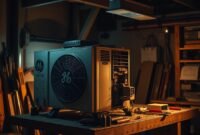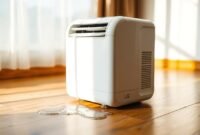Are you tired of your air conditioning shutting off all the time? An overheating AC compressor can make a hot day even worse. It’s stressful and uncomfortable, leaving you wondering why it keeps happening.
Knowing why your compressor overheats is key. Issues like low refrigerant or electrical problems can cause it to shut down. I’ll share important information to help you figure out and fix your AC’s issues.
Understanding Your AC Compressor’s Role in Cooling
Your air conditioning system’s compressor is the heart of cooling. It works hard to keep your home cool. Think of it as the engine that makes warm air cool.
When ac compressor overheating symptoms start to appear, it’s important to know how it works. The compressor is key in the cooling cycle. It’s the main way heat is moved.

How the Compression Cycle Works
The compression cycle has several stages:
- Refrigerant absorbs heat from indoor air
- Compressor pressurizes and heats the refrigerant
- Hot refrigerant moves to the condenser
- Heat is released outside the home
- Cooled refrigerant returns to indoor unit
The Impact of Compressor Health on System Performance
If your AC keeps turning on and off, it might have compressor issues. A good compressor cools well. But a bad one uses more energy and might fail.
Key Components That Support Compressor Function
Many parts help the compressor work well:
- Refrigerant lines
- Condenser coils
- Expansion valve
- Electrical connections
- Capacitor
Knowing how these parts work helps you spot and fix cooling problems early.
Common Signs of an Overheating AC Compressor
Spotting ac compressor overheating signs can prevent expensive fixes and sudden breakdowns. An overheating air compressor sends clear warning signs that homeowners should not ignore.
Your AC system shows signs of trouble through several clear indicators. Knowing why your air compressor overheats and shuts off can help you act fast to avoid serious damage.
- Unusual loud humming or buzzing sounds from the compressor
- Decreased cooling performance in your home
- Frequent system shutdowns without completing cooling cycles
- Circuit breaker tripping repeatedly
- Hot or burning smell near the outdoor unit
Temperature is key to compressor health. If your system can’t keep a steady cool, it might be under stress. Compressors working too hard get too hot, leading to wear and tear, and possible failure.
Professional HVAC techs say to watch for these signs closely. Catching problems early can save you from costly replacements and keep your cooling system running well all summer.
Why is My AC Compressor Overheating and Shutting Off?
It’s frustrating when your AC compressor suddenly stops working. Knowing why it overheats and shuts off is key to keeping your cooling system running well.
Several important factors can make your AC compressor overheat and stop. Let’s look at the main reasons that might be causing your system trouble.
Read also: What Causes Condensation on AC Vents?
Low Refrigerant Levels
Low refrigerant is a big reason for AC compressor overheating. When refrigerant levels are low, the compressor works too hard. This leads to more heat and strain.
- Reduced refrigerant causes increased mechanical stress
- Compressor must work harder to maintain temperature
- Potential for permanent damage if not addressed quickly
Electrical Problems
Electrical issues can also make your AC compressor overheat and shut off. Problems like faulty wiring or voltage issues can cause sudden shutdowns.
- Damaged electrical connections
- Malfunctioning capacitor
- Inconsistent power supply
Read also: Why Does My AC Compressor Shut Off After 2-3 Minutes?
Dirty Components
Dirt and debris can block airflow and heat dissipation, causing overheating. Regular cleaning and maintenance are vital to avoid these issues.
- Blocked condenser coils
- Dirty air filters
- Obstructed ventilation areas
If your AC compressor keeps starting and shutting off, get a pro to check it. A professional HVAC technician can do a thorough diagnostic.
The Impact of Refrigerant Leaks on Compressor Performance
Refrigerant leaks can cause your air conditioning to shut off. When refrigerant levels drop, your AC system has trouble cooling. This puts extra stress on the compressor.
Leaks in your cooling system are a big problem. As refrigerant leaks out, the system’s pressure drops a lot. Your compressor then has to work harder to cool, leading to several issues:
- Increased energy consumption
- Reduced cooling efficiency
- Potential compressor damage
- Longer time to cool your space
I’ve seen many cases where refrigerant leaks make cooling take longer. The system works less well, making the compressor run non-stop. This can cause it to fail early.
Detecting refrigerant leaks early is key. Watch for these signs:
- Hissing sounds near the AC unit
- Ice buildup on refrigerant lines
- Noticeably warm air from vents
- Unexpected increase in energy bills
Professional HVAC technicians can quickly find and fix refrigerant leaks. They prevent long-term damage to your cooling system. Don’t ignore these symptoms – fixing them quickly can save you from expensive compressor replacements.
How Dirty Condenser Coils Affect Your AC System
Dirty condenser coils can cause big problems with your air conditioner. They are key for heat transfer. This can make your AC compressor overheat and shut off.
Condenser coils help release heat from your AC. But, when they get dirty, they can’t do their job well. This makes your system work too hard.
Signs of Contaminated Coils
Knowing the signs of dirty condenser coils is important. Look for these signs:
- Reduced cooling efficiency
- Increased energy bills
- Air conditioner turns off after 30 seconds
- Warm air blowing from vents
- Unusual system noises
Cleaning and Maintenance Requirements
Keeping condenser coils clean is key to avoiding overheating. Here’s what you should do:
- Turn off power to the AC unit
- Remove external debris around the unit
- Use a soft brush to gently clean coil surfaces
- Apply specialized coil cleaner
- Rinse carefully with low-pressure water
Regular maintenance by professionals can prevent these issues. It also helps your AC last longer. If problems persist, get help from an HVAC technician.
Circuit Breaker Issues and Compressor Problems

When your AC keeps turning on and off, a circuit breaker problem might be the root cause. The circuit breaker is a key safety feature. It protects your air conditioning system from too much electrical current. Knowing why your circuit breaker trips can help find compressor problems early.
A tripping circuit breaker often means your AC compressor is using too much electricity. This usually happens when the compressor is under strain or has internal issues. Several reasons can cause these electrical problems:
- Compressor motor experiencing mechanical strain
- Electrical winding damage inside the compressor
- Refrigerant pressure irregularities
- Accumulated dust and debris in system components
If your circuit breaker keeps tripping, it’s a sign your AC system needs help. These electrical issues can damage your compressor and other important parts. Make sure the circuit breaker’s amperage rating matches your AC unit’s needs.
Steps to diagnose circuit breaker issues include:
- Inspect the circuit breaker for visible signs of wear
- Verify the electrical connections are secure
- Check the compressor’s electrical resistance
- Clean or replace air filters
If you see your circuit breaker tripping often, don’t ignore it. These electrical problems could mean a big issue with your AC compressor. It’s best to get a professional to check it out right away.
The Role of Proper Ventilation in Preventing Overheating
Proper ventilation is key to stopping ac compressor overheating. Without enough airflow, your air conditioner can’t cool down properly. This leads to overheating and shutdowns.
Air conditioning units need space to breathe well. If they don’t get enough air, they work too hard and get hotter. This can cause big problems.
Optimal Placement Strategies
Choosing the right spot for your AC unit is very important. Here are some tips:
- Put it in a shaded area to avoid direct sunlight
- Make sure there’s at least 2-3 feet of space around it
- Don’t place it near things that make heat
- Keep it a bit off the ground
Clearing Obstructions for Maximum Performance
It’s important to clear any blockages around your AC unit. Things like plants and debris can block air and cause overheating. Regular checks can help avoid these problems.
Do a check every quarter to make sure:
- No plants or shrubs are too close
- The area is clean of leaves, branches, and dirt
- The air intake and exhaust are clear
By following these tips, you can lower the chance of compressor overheating. This will also make your air conditioner last longer.
Importance of Regular Maintenance and Oil Changes
Keeping your air conditioning system in top shape requires consistent care. If your ac compressor starts then shuts off, it might be a sign for professional maintenance. Regular check-ups can prevent many cooling system problems before they get worse.
Proper maintenance involves several critical steps to ensure your AC runs smoothly and efficiently. Let me break down the key aspects of maintaining your cooling system:
- Annual professional inspections
- Regular oil changes for the compressor
- Cleaning air filters monthly
- Checking refrigerant levels
- Examining electrical connections
Understanding why your air conditioning keeps shutting off often comes down to neglected maintenance. A well-maintained AC system can prevent unexpected breakdowns and extend the life of your equipment.
| Maintenance Task | Frequency | Potential Benefits |
|---|---|---|
| Compressor Oil Change | Annually | Reduces friction, prevents overheating |
| Air Filter Replacement | Every 1-3 months | Improves air quality, system efficiency |
| Professional Inspection | Yearly | Identifies potentially issues early |
Investing in regular maintenance might seem like an extra expense, but it’s far more cost-effective than dealing with major repairs or complete system replacement. By staying proactive, you’ll keep your AC running smoothly and avoid unexpected shutdowns.
When to Call a Professional HVAC Technician
Dealing with an AC compressor that keeps overheating and shutting off can be frustrating. While some minor issues can be addressed at home, certain warning signs indicate it’s time to call a professional HVAC technician.
As a homeowner, recognizing when your air conditioner turns off after 30 seconds might signal a more serious problem. Professional technicians have the tools and expertise to handle complex compressor issues. They can fix problems that go beyond simple DIY fixes.
Emergency Warning Signs
Here are critical indicators that you need professional help:
- Persistent electrical burning smell
- Loud grinding or clicking noises from the compressor
- Repeated circuit breaker tripping
- Complete system shutdown
- Visible refrigerant leaks
Repair vs. Replacement Decisions
Deciding whether to repair or replace your AC unit depends on several factors. I recommend consulting a professional who can provide a detailed assessment.
| Repair Considerations | Replacement Considerations |
|---|---|
| Unit is less than 10 years old | Unit is over 15 years old |
| Repair cost is less than 50% of new unit | Repair cost exceeds 50% of new unit |
| Minor component failure | Compressor or major system failure |
Professional HVAC technicians can help you make these decisions. They ensure your system operates efficiently and safely. Don’t risk further damage by attempting complicated repairs on your own.
Preventive Measures to Protect Your AC Compressor

Keeping your AC compressor safe is key to avoid problems like why your AC keeps turning on and off. Simple steps can help your cooling system last longer and cool faster.
Regular maintenance is essential for a smooth-running air conditioner. Create a care plan that tackles common compressor issues.
- Clean or replace air filters every 1-3 months
- Clear debris from around the outdoor unit
- Schedule annual professional inspections
- Check refrigerant levels periodically
- Ensure proper electrical connections
It’s important to keep your AC unit clear. Make sure there’s at least two feet of space around it. This prevents overheating and reduces on-off cycles.
Trimming nearby plants and removing obstructions is also vital. This ensures good airflow and keeps your system running smoothly.
DIY maintenance is helpful, but don’t skip professional check-ups. An HVAC technician can spot issues early, saving you money and avoiding breakdowns.
Watch your system’s performance closely. Unusual sounds, less cooling, or frequent cycling are warning signs. These could mean your compressor is under stress and needs attention.
Conclusion
Knowing why your AC compressor overheats and shuts off is key to keeping your home cool. This guide has covered the signs and reasons behind these issues. AC compressor overheating is not just a warning; it’s a call for action.
Preventive care is your strongest ally against AC problems. Regular checks, cleaning the condenser coils, and checking refrigerant levels help a lot. Also, make sure your AC has good airflow and keep it clean.
If your AC system keeps giving you trouble, call a pro HVAC tech. While you can do some upkeep yourself, some issues need a pro’s eye. By being proactive, you can keep your AC running smoothly all summer.
Your comfort and the efficiency of your AC system go hand in hand. By taking care of your AC compressor, you’ll enjoy a cooler, more reliable home for years.


